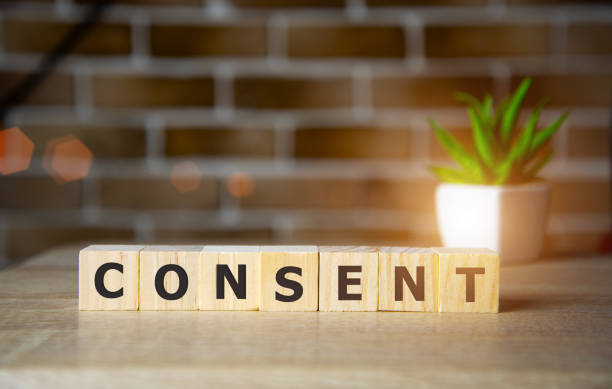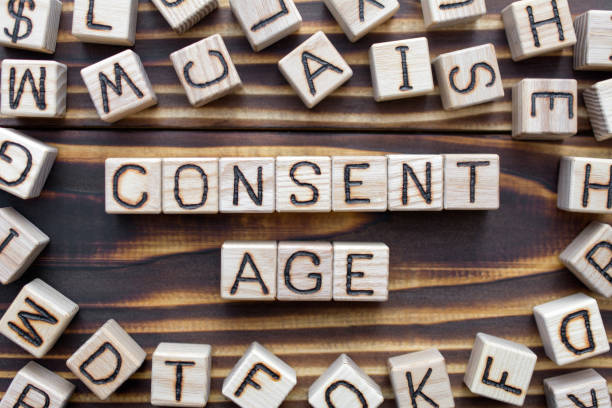Disclaimer: This article only aims to inform laws about the age of consent in Queensland, Australia. Some terms may be graphic and may be unsettling to some readers. We advise to take precaution before reading. Please contact your nearest law enforcement authorities if you know someone who violates the age of consent in your area.
Understanding the legal structures that regulate our behaviour is critical in today’s culture, especially when dealing with delicate issues like the age of consent, consensual sex, and same sex sexual activity laws. In Queensland (QLD), the age of consent is an important legal barrier that everyone, especially young person and persons and their guardians, should be aware of. The age of consent in Queensland acts as a key guideline for determining the legally appropriate age for engaging in a sexual act, with the goal of protecting young people from exploitation and abuse.
Historically, Queensland had different laws regarding the age of consent for sexual acts involving vaginal penetration and anal penetration. Until 2016, the age of consent for vaginal sex was 16, but the age of consent for anal sex was 18.
This article explores the nuances of the age of consent in Queensland, providing insights into its ramifications, legal exceptions, and the necessity of being informed to negotiate the complexities of the law appropriately.
What Is the Age of Consent?
At the core of the matter, the age of consent refers to the minimum age at which an individual can legally consent to sexual acts. QLD firmly sets this threshold at 16 years of age, safeguarding minors from premature sexual experiences and potential exploitation.
Key Points About the Age of Consent in QLD:
- Legal Threshold: 16 years old for both males and females.
- Homosexual and Heterosexual Acts: QLD law treats them the same under the age of consent regulations.
Understanding the Legal Implications
The age of consent in QLD is not just a number; it carries significant legal implications. Engaging in sexual intercourse (also known as ‘carnal knowledge’) or activities with someone below this age is illegal and can lead to severe legal consequences, including charges of statutory rape or sexual assault.

The Importance of Consent
Consent must be informed, freely given, and mutual. It’s imperative to understand that even if an individual is above the age of consent, any sexual contact or activity without consent is unlawful. This emphasises the necessity of respect and mutual agreement in all interactions. Prior to engaging in any sexual activity, obtaining consent is crucial. This includes:
- Touching your breasts, buttocks, genitalia, or any other intimate area of your body
- Anything that enters a vagina, anus, or mouth which is considered sexual penetration.
- Having you engage in sexual activity with them.
- Exposing their genitalia to you, kissing you, or posting images of you that have been sexualised.
Exceptions and Considerations
Although QLD sets the age of consent at 16, it is important to acknowledge several legal nuances and exceptions:
- Close in Age Exemptions: Often referred to as “Romeo and Juliet” laws, these provisions allow for minors who are close in age to engage in consensual sexual activities without the fear of legal repercussions.
- Marriage: Allows individuals under 16 but over a certain age, in specific circumstances or reasonable grounds, to legally engage in sexual activities (subject to very strict and limited conditions).
Case Study: R v Svensson; ex parte A-G (Qld) [2002] QCA 472
Background and Legal Challenge
In the Supreme Court of Queensland, the case of R v Svensson provided a profound examination of legal principles surrounding sentencing for sexual offences, particularly against the backdrop of the “age of consent”. Kenneth Roy Svensson faced convictions for committing sexual misconduct against young boys aged 15, 16, and 17 and a half years, while he was in his 40s and 50s. The offences, spanning indecent dealing to sodomy, occurred under the pretence of providing employment within Svensson’s video production business.
The Attorney-General of Queensland challenged the initial sentencing by the District Court at Brisbane, which had imposed wholly suspended sentences citing the respondent’s health concerns. The challenge advocated for actual imprisonment to reflect the severity of abusing minors below the age of consent.
Court’s Deliberation and Decision
The appeal intricately balanced the need for justice for the victims, the protection of individuals below the age of consent, and the health concerns of the ageing offender. The Court, through the collective yet individual analyses by Chief Justice de Jersey CJ, McMurdo P, and Davies JA, underscored the paramount importance of imposing actual imprisonment for offences involving victims below the age of consent.
This stance was taken despite acknowledging the respondent’s health issues, with a significant emphasis on the capability of prison facilities to accommodate such needs. The verdict led to the adjustment of the initial sentences to include a mandatory period of imprisonment followed by suspended sentences, reinforcing the legal system’s commitment to safeguarding the welfare of minors and upholding the integrity of the age of consent.
Implications and Observations
This landmark case reaffirms the judiciary’s stringent view on offences violating the age of consent, highlighting the critical balance between the offender’s circumstances and the need to protect vulnerable youths. It highlights how the judicial system diligently ensures that the exploitation of individuals below the age of consent results in appropriate legal repercussions, regardless of any mitigating factors presented by the defense.
The R v Svensson case stands as a crucial reference point for legal professionals and the public in understanding how the law navigates complex issues surrounding consent, victim protection, and sentencing in sexual abuse cases or child child sex offences.
The Role of Education and Awareness
Educating the youth and the broader community about the age of consent in QLD is crucial for ensuring that young individuals can make informed decisions about their bodies and relationships. Awareness campaigns and/or comprehensive sex education play vital roles in this regard, helping to demystify the legal jargon and promote a culture of respect and consent.

Navigating the Legal Challenges
Seeking advice or dealing with legal challenges related to the age of consent in QLD? Turn to a trusted ally. JB Solicitors, with their deep understanding of Australian law and child protection in NSW, actively offer comprehensive legal support and guidance.
For professional legal advice or representation regarding the age of consent in QLD, contact JB Solicitors to discuss your specific situation and learn how we can assist.
